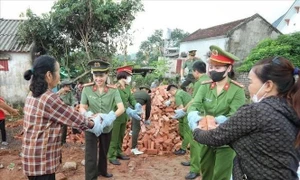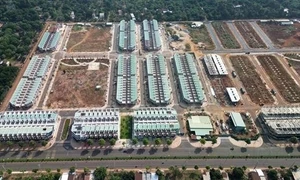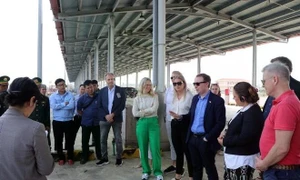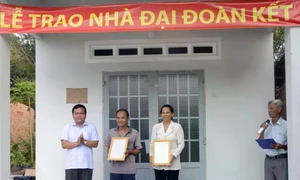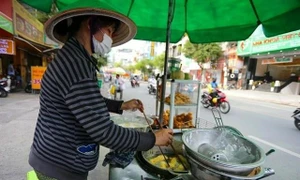The Central Institute of Hygiene and Epidemiology has announced that it has placed orders for 10 types of vaccines used in the expanded programme on immunisation from domestic manufacturers for allocation and distribution to localities in the early days of this month.

The orders will contain 1.55 million doses of tuberculosis vaccine; one million doses of hepatitis B vaccine; 4.98 million doses of oral polio vaccine; 1.9 million doses of measles vaccine; 1.7 million doses of measles-rubella vaccine; 1.4 million doses of Japanese encephalitis vaccine; 1.53 million doses of combined diphtheria-pertussis-tetanus vaccine; 1.47 million doses of pertussis vaccine, and 1.37 million doses of tetanus-diphtheria vaccine.
The quantity of these nine vaccine types is sufficient for catch-up purposes for children not vaccinated in 2023 and those due for vaccination in the first six months of 2024, the institute has said.
Additionally, 549,164 doses of the new rotavirus vaccine for acute diarrhoea prevention will be introduced into the expanded programme for infants under one year old, expected to be implemented in the second quarter of this year.
These vaccines will be received by the institute and promptly distributed to localities at the beginning of this month.
Previously, the institute, as well as Pasteur Institutes in localities, have guided the health sector in cities and provinces to be prepared to receive, transport, and supplement vaccines to all vaccination points. Special attention has been given to the timely supply of hepatitis B vaccine for newborns within 24 hours of birth.
The institute said that the vaccine distribution would be enhanced to ensure timely vaccination at all commune health centres.
In the coming period, the institute, along with Pasteur Institutes in localities, would instruct the 63 centres for disease control to maintain routine vaccination activities. Furthermore, in the first quarter of this year, they would intensify the implementation of catch-up vaccination for those not fully vaccinated during the vaccine transition period to prevent infectious diseases in the Winter-Spring season of 2024.
Ensuring the safety of vaccination was a top priority, it said. Commune health centres would increase vaccination sessions and continue to maintain 50 children per vaccination session to fully comply with vaccination safety procedures. This would include screening, counselling, guidance for parents, and monitoring of children after vaccination.
Previously on December 30, the Ministry of Health approved the specific prices for 10 domestically produced vaccines using the central budget for the expanded immunisation programme in 2023. These 10 vaccine types include polio, measles, measles-rubella, rotavin (rota), tetanus-diphtheria, adsorbed tetanus, diphtheria-pertussis-tetanus, lyophilised tuberculosis prevention, Japanese encephalitis and hepatitis B.
Immediately after approval, the institute worked with vaccine manufacturers to finalise procurement contracts at the earliest time possible to have all 10 vaccine types available for the programme.
VNS

